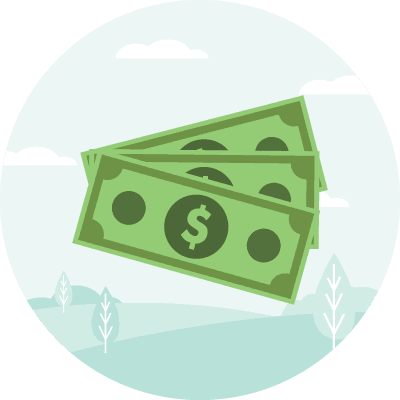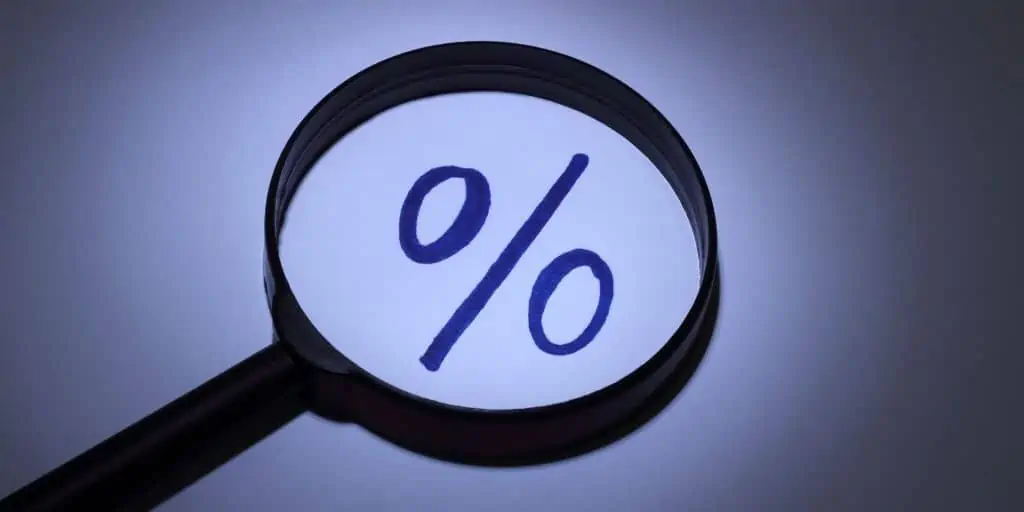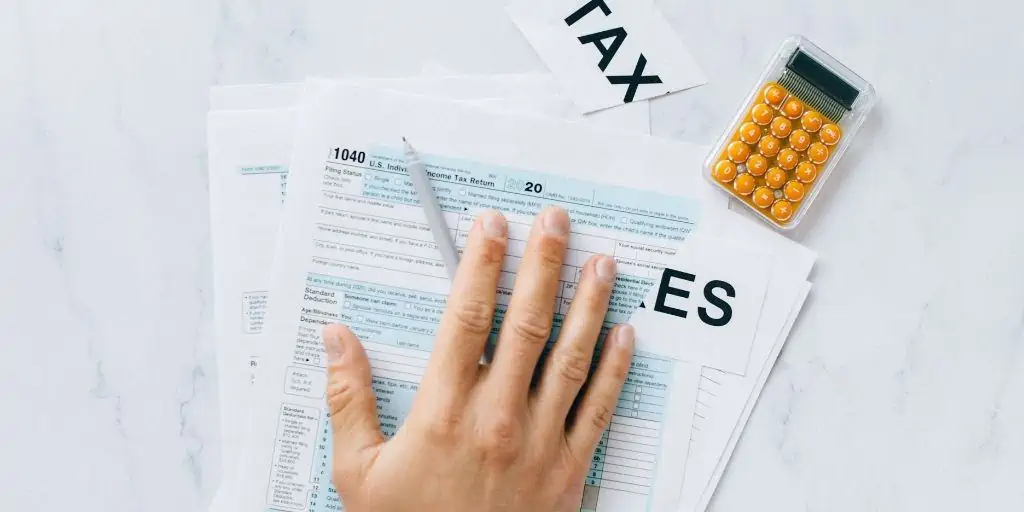What Is a Cash-Out Refinance?
REtipster does not provide tax, investment, or financial advice. Always seek the help of a licensed financial professional before taking action.
What Does It Mean to Refinance?
Refinancing (or “refi”) means taking out a new mortgage to replace an existing one. In effect, a borrower uses the new mortgage to pay off the old mortgage. Borrowers refinance to take advantage of the new mortgage’s better terms, such as lower interest rates or shortened payment terms.
There are two main types of refinancing: rate-and-term[1] and cash-out.
In a rate-and-term refinance, the new loan is an opportunity to change the interest rate[2] or term length[3] while matching the principal balance left in the current mortgage. In other words, it empowers the borrower to negotiate more favorable loan conditions without borrowing more than what is still owed on the house.
A cash-out refinance is the same, plus it enables one to tap into built-up home equity[4] in the form of cash (hence the name). It is one of the few types of home loan refinancing[5] that allows the borrower to access instant cash and use it for whatever purpose. However, it is only possible when the borrower has accumulated enough equity in their home[6].
Why Do a Cash-Out Refinance
Borrowers may do a cash-out refinance because of three reasons:
- To get a much better home loan.
- To turn equity into funds for wealth-building efforts.
- To stay in the house over the long term.
If any of the above goals is missing, pursuing cash-out refinancing will likely do more harm than good.
Refinancing a mortgage with the same interest rate and term length does not offset the act of resetting the clock on the home loan. It just extends the existing mortgage, including all its unfavorable conditions.
There is no restriction on how the borrower should use the funds from a cash-out refi. However, the most prudent move is to consolidate more expensive debts[7] and finance home projects to increase the property’s value. While investing in education or starting a business looks good in theory, neither is a guarantee that it can make the borrower’s financial situation better, and debt from those can become bad as well[8].
In addition, selling the property before reaching the break-even point[9] on a cash-out refinance practically defeats the purpose of doing a cash-out refi.
What Are the Disadvantages of a Cash-Out Refinance?
Cash-out refinances are popular when mortgage rates dip. Any homeowner who can do so should not do it merely for the sake of doing it.
Here are a few reasons.
High Overall Interest Payment
Cash from a cash-out refi is not free money. Cash-out refinancing essentially turns an asset (home equity) into a liability (home loan), so the funds are subject to interest charges.
Unless the replacement mortgage comes with a much lower rate and a meaningfully shorter term, cash-out refinancing will net the borrower more interest overall.
Increased Risk of Foreclosure
Although lenders generally observe a loan-to-value (LTV) ratio of 80%[10], cashing in on cash-out refinancing may increase the likelihood of the borrower’s mortgage sinking underwater[11]. This happens when property prices drop and the unemployment rate goes up due to bad economic conditions. Being unable to repay the mortgage one way or another can result in foreclosure.
Repeat Closing Costs
Mortgage closing costs are unavoidable. Paying them upfront lessens the cash-out from the refi, but rolling them into the loan balance will instead raise the interest payment. One does not need to be a serial refinancer[12] to feel the financial impact of multiple closing costs.
Reduced Tax Write-Offs
Spending the proceeds from a cash-out refi on a non-home expense is usually not tax-deductible. Plus, getting a lower interest rate may translate to a smaller tax deduction. A borrower should consult a tax expert to determine the tax implications of cash-out refinancing for their situation.
What Credit Score Is Needed for a Cash-Out Refinance?
To qualify for a cash-out refinance, the borrower needs a credit score of anywhere from 620 to 720[13]. LTV and debt-to-income ratios as well as available cash reserves determine the minimum credit score requirement.
If the borrower fails to meet the cash-out refinance lender’s criteria, alternative financing options like home equity loans and home equity lines of credit (HELOCs) will be more viable due to lower FICO score requirements[14].
How Long Does It Take to Get Funds From a Cash-Out Refinance?
The approval time for a cash-out refi usually takes 45 to 60 days, but it may take longer or sometimes shorter.
Here are a few factors that affect the loan’s closing timeline:
- Housing market. In a hot real estate market[15], lenders are busier than usual due to higher volumes of loan applications. As a result, it takes them more time to finalize documents. Proactively providing all of the necessary paperwork can help speed up the process.
- Appraisal. Low appraisals can be disappointing, but they are not necessarily set in stone. The borrower can look for report inaccuracies and find out the comparable homes the appraiser considered[16]. Asking the lender to review the appraisal to get more money can be time-consuming.
- Loan type. Refinancing a government-back mortgage can take a ton of time due to stricter underwriting standards and more cumbersome documentation requirements.
- Property type. If the property in question is a primary address, the borrower may still need to wait three business days after closing to receive the funds due to the rescission period[17]. The borrower can waive this legal right to get the money sooner. However, if the borrower is borrowing against a second home or an investment property, the funds can be made available within the same day.
The borrower typically receives it through check or wire transfer when the cash is ready for release.
Takeaways
- A cash-out refinance is a way of replacing a mortgage with a new one and tapping home equity at the same time.
- Paying more overall interest, increasing the chances of foreclosure, and dealing with closing costs again are some of the drawbacks to cash-out refinancing.
- A cash-out refinance has higher credit score requirements than home equity loans and HELOCs.
- Usually, a cash-out refinance takes around 45 to 60 days to get approved.
Sources
- Tarpley, L. (2021.) How a Rate-and-Term Refinance Works. Business Insider. Retrieved from https://www.businessinsider.com/personal-finance/rate-and-term-refinance
- Robertson, C. (2022.) Are Mortgage Rates Negotiable? How to Haggle Your Way to Big Savings. The Truth About Mortgage. Retrieved from https://www.thetruthaboutmortgage.com/are-mortgage-rates-negotiable/
- Chase. (2020.) Choosing a mortgage term. Retrieved from https://www.chase.com/personal/mortgage/education/financing-a-home/choosing-mortgage-term
- Ceizyk, D. (2021.) How to Build Equity in Your Home in 10 Steps. LendingTree. Retrieved from https://www.lendingtree.com/home/home-equity/how-to-build-equity-in-your-home/
- Dehan, A. (2022.) Types Of Mortgage Refinance: Which Option Is Right For You? Rocket Mortgage. Retrieved from https://www.rocketmortgage.com/learn/types-of-refinance
- My Home by Freddie Mac (n.d.). Understanding your home’s equity. Retrieved from https://myhome.freddiemac.com/owning/equity-and-appreciation
- Treece, K. (2021.) What Is Debt Consolidation & How Does It Work? Forbes Advisor. Retrieved from https://www.forbes.com/advisor/personal-loans/what-is-debt-consolidation/
- Fay, B. (2021.) Good Debt vs. Bad Debt. Debt.org. Retrieved from https://www.debt.org/advice/good-vs-bad/
- Presto, J. (2022.) What’s the Break-Even Point in Refinancing? EnTrust Funding. Retrieved from https://entrustfunding.com/post/what-s-the-break-even-point-in-refinancing/
- Miller, D. (2022.) How to get equity out of your house. Bankrate. Retrieved from https://www.bankrate.com/home-equity/how-much-equity-can-you-cash-out-of-home/
- Berson, K. (2021.) Underwater on a Mortgage | What To Know. Upsolve. Retrieved from https://upsolve.org/learn/underwater-mortgage/
- MacDonald, J. (2016.) Is it smart to be a serial refinancer? Yahoo Finance. Retrieved from https://finance.yahoo.com/news/smart-serial-refinancer-100000890.html
- Yale, A. (2021.) Credit Score Needed to Refinance Your Home. Credible. Retrieved from https://www.credible.com/blog/mortgages/credit-score-to-refinance/
- Fried, C. (2018.) What Credit Score Do I Need to Get a Home Equity Loan? Experian. Retrieved from https://www.experian.com/blogs/ask-experian/what-credit-score-do-i-need-to-get-a-home-equity-loan/
- Ramsey Solutions. (2021.) How to Navigate a Hot Housing Market: For Buyers and Sellers. Retrieved from https://www.ramseysolutions.com/real-estate/navigating-real-estate-market
- Marquand, B. (2021.) Refinance Appraisal Came in Low? How to Respond. NerdWallet. Retrieved from https://www.nerdwallet.com/article/mortgages/challenge-low-refinance-appraisal
- Bronner, S. (2021.) What Is the Right of Rescission? How to Cancel Your Refinance. NextAdvisor with TIME. Retrieved from https://time.com/nextadvisor/mortgages/right-of-rescission/












